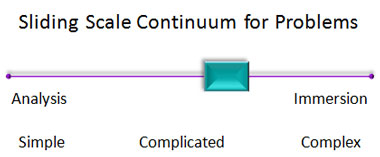OLDaily
by Stephen Downes
April 22, 2010
Personal Learning Environments
I created this video for my keynote in Hämeenlinna, Finland, because of course I could not attend because of the volcano. It described the major elements of the PLE system and talks about the environment and learning theory behind the PLE. Presentation by Stephen Downes, Interactive Technology in Education - conference , Hämeenlinna, Finland, by Video, [Link]
Connectivism in Practice: Critical Thinking as a Distributed Course
In this presentation I describe the next step of my work in online connectivist courses, the Critical Literacies course that will be starting in June. This course attempts to teach the literacies I believe are needed to flourish in a connectivist environment; this presentation describes those literacies and that course.
Presentation by Stephen Downes, Interactive Technology in Education - conference , Hämeenlinna, Finland, by Skype, [Link]
Final blog post
We'll miss Kerry Johnson's insights into learning online, but wish her well as she moves on. "My colleagues," she writes, "are amazing people who love learning. The youngest is a grandfather who loves his iPhone. I am amazed and humbled that I work with world-renowned information management professionals who share their knowledge and time patiently and freely. Educators who want to create experiences for others to grow and learn. Technical support who are proactive and passionate about their work. Admin pros who keep it all ticking over."
Kerry Johnson,
KerryJ's blog,
April 22, 2010 [Link] [Tags: Online Learning, Experience, Web Logs]
[Comment] [Tweet]
Simplifying Learning Design
Scott Wilson agrees "a re-think of IMS LD from the ground up is something worth thinking about." But his talke on how to go about it differs from that proposed by Guillaume Durand's SLD proposal. "His idea of the 'essence' of Learning Design is rather different from my own," he writes, "and in fact he keeps what I would have thrown out, and he throws out some of what I would have kept." Specifically, Durand keeps the rules - the conditions, the branching, and the like - while Wilson wants to keep groups and roles. Durand replies, but you'll have to search for it in what must be the most user-hostile comments section I've ever seen (is it Google Connect? It's awful).
Scott Wilson,
Scott's Workblog,
April 22, 2010 [Link] [Tags: Google, IMS Project]
[Comment] [Tweet]
Happy Paperless Earth Day!
Well, I didn't use paper for anything today. Happy paperless Earth Day! Of course, I don't use any paper most days. That's the difference between going paperless for Earth Day, and going paperless by Earth Day. But hey, one step at a time, hm?
A Faire Alchemist,
Teach Paperless,
April 22, 2010 [Link] [Tags: none]
[Comment] [Tweet]
Personal Learning Environments and Vygotsky
Me, I don't see personal learning environments (PLEs) from a constructivist perspective, but a lot of people do, including Graham Attwell in this post. A Personal Learning Environment is developed from tools or artefacts. Vygotsky (1978) considered that all artefacts are culturally, historically and institutionally situated. 'In a sense, then, there is no way not to be socioculturally situated when carrying out an action. Conversely there is no tool that is adequate to all tasks, and there is no universally appropriate form of cultural mediation.'" Well, quite so, but they're also personally situated, and that marks a key line of demarcation between me and the (social) constructivists.
Graham Attwell,
Pontydysgu,
April 22, 2010 [Link] [Tags: Personal Learning Environment, Constructivism]
[Comment] [Tweet]
we-magazine special: FutureChallenges
The third issue of We Magazine focuses on "Future Challenges" and features a diverse range of contributors, including Peter Kruse, Hans Rosling, George Siemens, John Hagel III, Peter Spiegel, Isaac Mao, Emer Beamer and many more. Meanwhile, FutureChallenges is a newly open website addressing such issues as climate change, globalization and pandemics (to name only three). It'll take a bit to get used to the navigation.
Various Authors,
Website,
April 22, 2010 [Link] [Tags: Usability, Connectivism, Navigation]
[Comment] [Tweet]
The Immersion and Analysis Continuum in Simple to Complex Environments

This was such a nice way of putting it I used it in my presentation today. If you are looking at simple or complicated things, you do analysis - take it apart, look at how the parts work. But if you are dealing with something complex, analysis no longer works; in such a case, your method of study must be immersive, "the method of soaking yourself in understanding what the problem is that you are facing in addition to informing the other three parts of the framework."
Donald Clark,
Big Dog, Little Dog,
April 22, 2010 [Link] [Tags: none]
[Comment] [Tweet]
Repositories and the Open Web: report
Report summarizing the recent Repositories and the Open Web discussions at CETIS. Phil Barker identifies three major themes: "Firstly there were several accounts of working with existing services to provide hosting or community.... Related to this was the second theme of working with the technologies and specifications of web 2.0 sites, most notably RSS/ATOM syndication feeds.... A theme that didn't quite get discussed, but is nonetheless interesting was around openness." These are all close to my own heart so I no doubt would have felt quite at home there. Also worth noting is a second post from Phil Barker discussing my recent discussion of Resource Profiles.
Phil Barker,
Phil's JISC CETIS blog,
April 22, 2010 [Link] [Tags: Content Syndication, RSS]
[Comment] [Tweet]
This newsletter is sent only at the request of subscribers. If you would like to unsubscribe,
Click here.
Know a friend who might enjoy this newsletter? Feel free to forward OLDaily to your colleagues. If you received this issue from a friend and would like a free subscription of your own,
you can join our mailing list. Click here to subscribe.
Copyright 2008 Stephen Downes
Contact: stephen@downes.ca
This work is licensed under a
Creative Commons License.